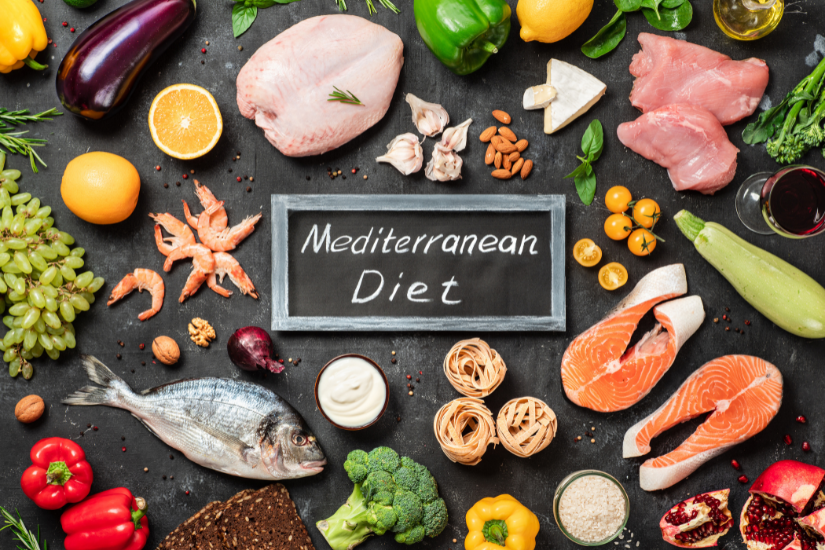Your Guide to Popular Diets — Part 3: The Mediterranean Diet

What Is the Mediterranean Diet?
The Mediterranean diet reflects the traditional eating habits of people living around the Mediterranean Sea. It’s more than a list of foods — it celebrates simple cooking methods, fresh ingredients, and eating together as a family or community.
This diet focuses on whole, natural foods and heart-healthy fats. Here’s what it encourages:
-
Plenty of fresh vegetables, fruits, herbs, and spices
-
Whole grains instead of refined carbs
-
Healthy oils, especially extra-virgin olive oil or canola oil
-
More fish and seafood, especially fatty fish like salmon and sardines
-
Legumes and pulses as protein and fiber sources
-
Limited red meat and processed meat
-
Low to moderate dairy (mainly yogurt and cheese)
-
Moderate wine (up to 2 small glasses per day for men and 1 for women)
A typical Mediterranean meal might be:
Salmon sautéed with colorful vegetables in olive oil, garlic, onion, parsley, and rosemary — topped with walnuts, sunflower seeds, and pomegranate, finished with lemon juice and black pepper, and served with whole-wheat bread.
These foods are widely available in most markets, making the Mediterranean diet easy to adopt.
Health Benefits
The Mediterranean diet is packed with healthy unsaturated fats, fiber, antioxidants, and plant compounds such as polyphenols, anthocyanins, carotenoids, and vitamin E. These nutrients give it strong anti-inflammatory and antioxidant effects.
Research shows the diet may help:
-
Support weight loss and healthy metabolism
-
Protect heart health by lowering blood pressure and improving cholesterol
-
Support brain and cognitive health
-
Reduce risk of type 2 diabetes and metabolic syndrome
-
Protect against chronic diseases, including some cancers and joint inflammation
It is one of the most-studied eating patterns in the world and is often ranked as one of the healthiest diets overall.
How to Get Started
-
Cook with olive oil instead of butter.
-
Add nuts and seeds for crunch and healthy fats.
-
Eat fish twice a week or more.
-
Make vegetables the main part of your plate.
-
Enjoy meals with others when possible — the social aspect is part of the lifestyle. PRIME












Leave A Comment